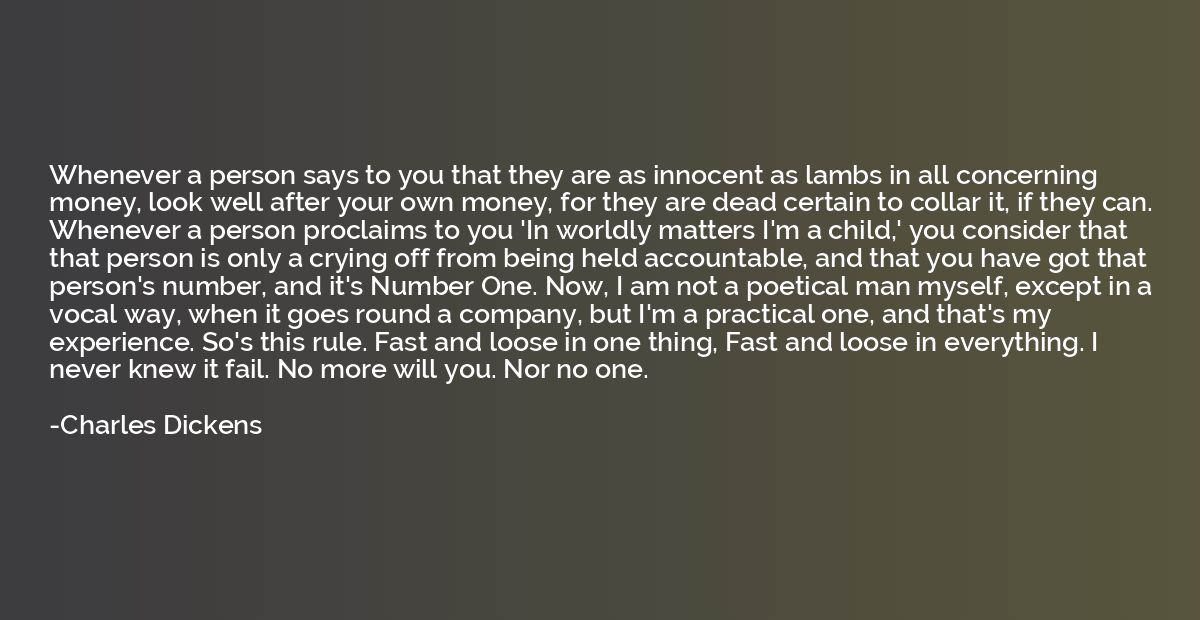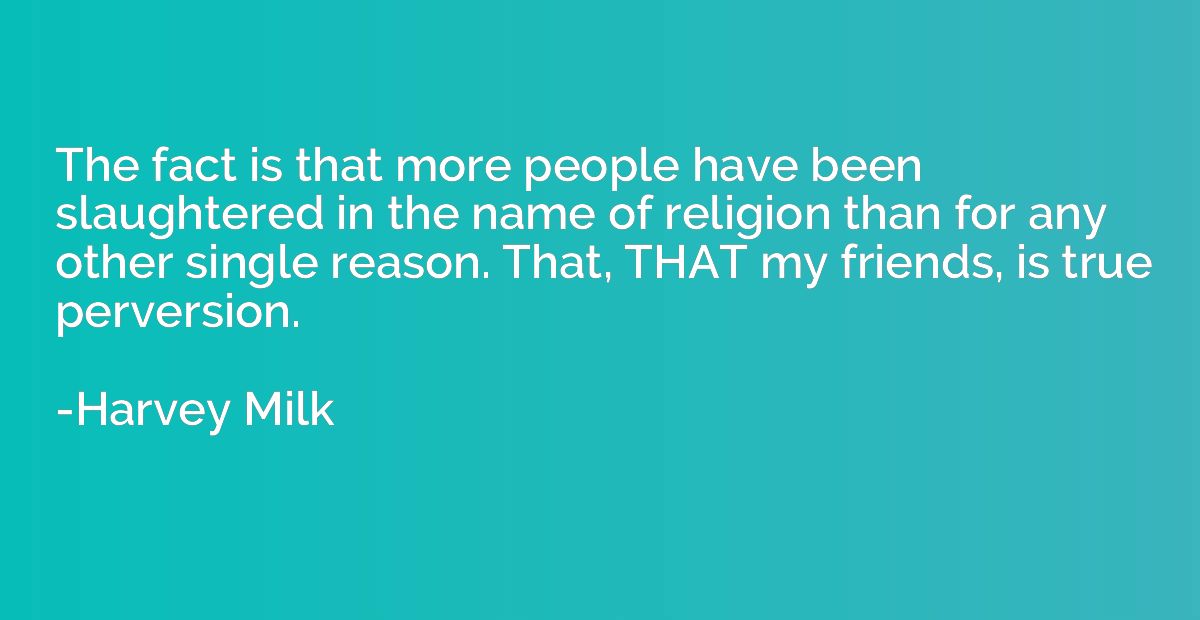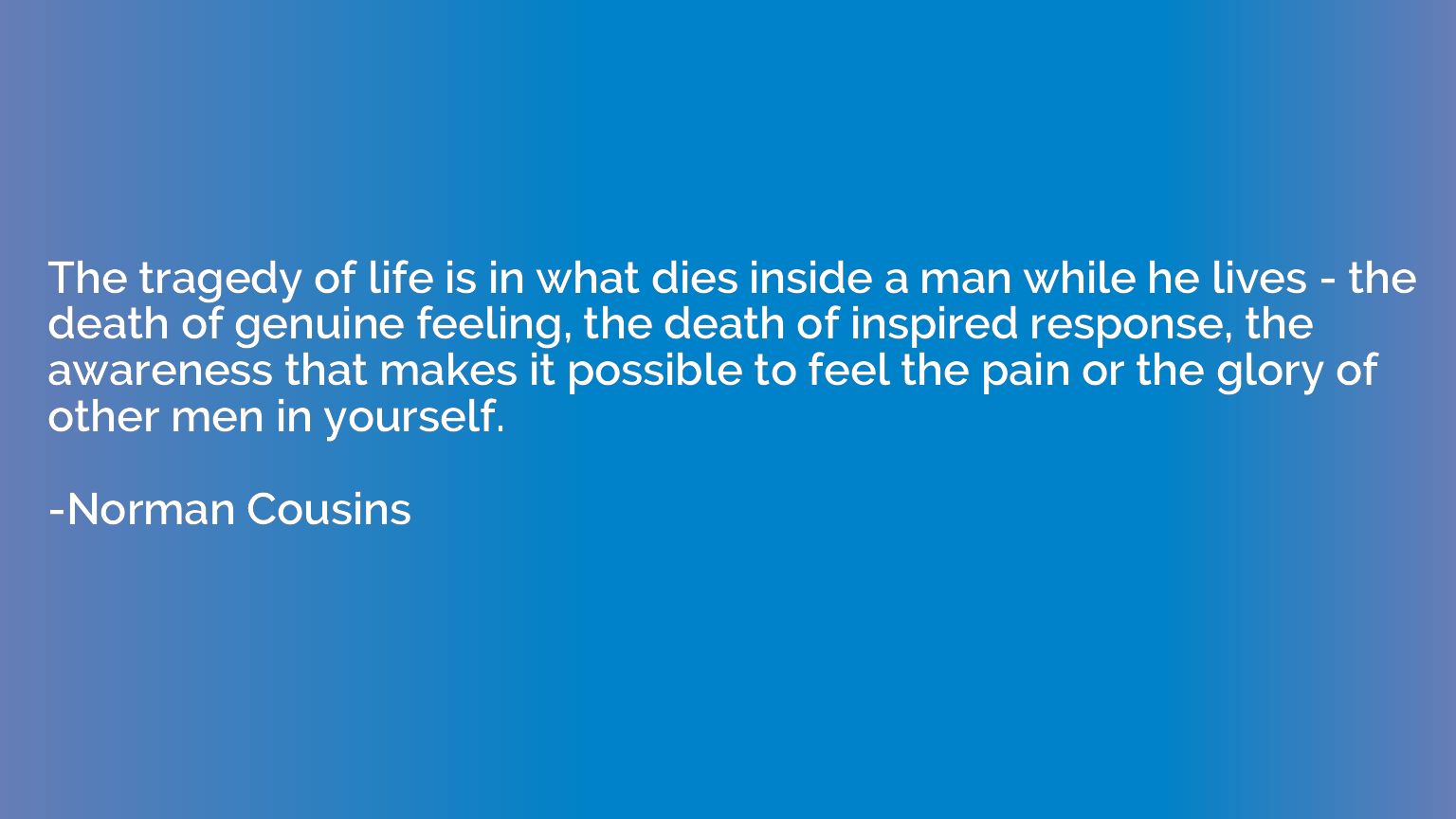Quote by Charles Dickens
Whenever a person says to you that they are as innocent as lambs in all concerning money, look well after your own money, for they are dead certain to collar it, if they can. Whenever a person proclaims to you 'In worldly matters I'm a child,' you consider that that person is only a crying off from being held accountable, and that you have got that person's number, and it's Number One. Now, I am not a poetical man myself, except in a vocal way, when it goes round a company, but I'm a practical one, and that's my experience. So's this rule. Fast and loose in one thing, Fast and loose in everything. I never knew it fail. No more will you. Nor no one.

Summary
This quote emphasizes the importance of being cautious when someone claims innocence or ignorance, particularly when it comes to money matters. The speaker suggests that individuals who proclaim their innocence or naivety in financial affairs are likely trying to deceive and take advantage of others. They caution the listener to be vigilant and not let such claims deceive them, as those who are dishonest in one aspect of life are likely to display the same behaviors in other areas as well. The speaker shares their personal experience and suggests that this rule of being wary has never let them down.














